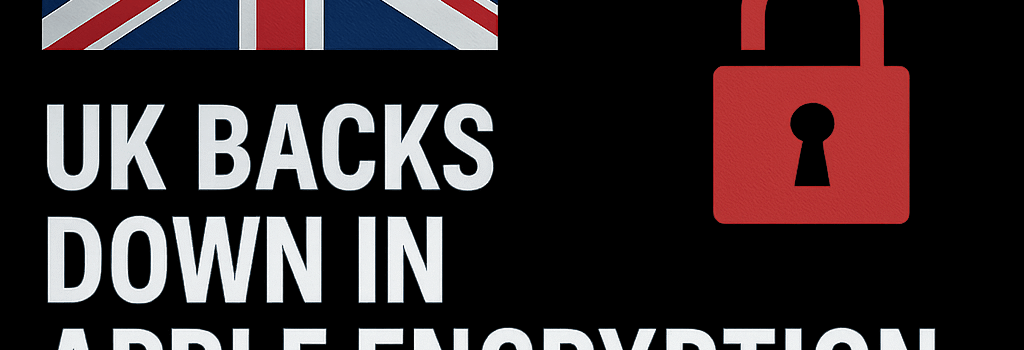UK Backs Down in Apple Encryption Backdoor Dispute

Senior UK officials have signaled a strategic retreat in the prolonged standoff with the United States over the UK Home Office’s demand that Apple embed a backdoor into its end-to-end encrypted cloud storage. Under intense diplomatic pressure—most notably from US Vice President J.D. Vance and President Donald Trump—the UK government is exploring alternatives to its January technical capability notice issued under the Investigatory Powers Act (IPA).
Background: The IPA and the Apple Order
In January 2025, the Home Office served Apple with a Technical Capability Notice (TCN) under Section 198 of the IPA. The notice compels Apple to introduce functionality allowing law enforcement and security agencies to decrypt data stored in Apple’s most secure iCloud offerings—data currently protected by Secure Enclave-based key management and end-to-end encryption (E2EE).
- Scope: Covers iCloud Backup encryption, iCloud Messages in iCloud, Health and Home data protected by per-device keys.
- Technical requirement: Implement a “key escrow” or “cryptographic backdoor” to grant access upon lawful request.
- Legal constraints: Recipients of a TCN must not disclose the order or its existence without Home Secretary approval.
US Diplomatic Pushback
Multiple senior UK figures confirm that the Trump administration—through direct interventions by VP Vance and US Director of National Intelligence Tulsi Gabbard—has deemed the UK demand for an Apple backdoor an unacceptable infringement on American data protection standards. Vance warned at the Munich Security Conference that European moves to weaken encryption jeopardize both free speech and democratic resilience.
“This is something that the vice president is very annoyed about and which needs to be resolved,” said a UK technology department official. “The Home Office is basically going to have to back down.”
Technical Architecture of Apple’s Encryption
Apple’s E2EE relies on:
- Secure Enclave: A hardware security module within Apple SoCs that stores private keys isolated from iOS/macOS kernels.
- Key Hierarchy: Device keys unlock per-file keys; a top-level key encrypts backups and messages, never stored in plaintext on Apple servers.
- iCloud Key Vault: Uses asymmetric cryptography (Curve25519) to exchange keys among devices, with Apple holding only wrapped keys it cannot decrypt without device cooperation.
Embedding a backdoor would require a redesign of this architecture, introducing a master key escrow or live key-splitting protocol—steps Apple argues would weaken global security and risk exposure to threat actors.
Impact on Transatlantic Tech Partnerships
UK trade strategists worry that pressing Apple could stall ongoing negotiations in AI, cloud computing and semiconductor supply chains:
- AI Collaboration: Delayed AI regulation and data-sharing frameworks with the US, potentially sidelining UK firms in funding and research consortia.
- Cloud Deals: AWS, Microsoft Azure and Google Cloud are wary of legal conflicts that could affect UK data centers and transatlantic connectivity agreements.
- Hardware Investment: US chipmakers like Intel and Nvidia might reconsider R&D projects in the UK if encryption demands set a precedent for other vendors.
Industry and Legal Responses
Apple promptly withdrew its most secure iCloud storage tier from the UK market in February and filed a challenge at the Investigatory Powers Tribunal. In March, WhatsApp (Meta) joined the litigation, marking a rare alliance between Silicon Valley rivals. Legal experts from Bird & Bird and Clifford Chance note that the case could redefine the scope of lawful access under the IPA and influence similar debates across the EU and Commonwealth.
Future Legal and Regulatory Outlook
With the UK Labour government delaying its AI regulatory framework until after May 2026, officials are balancing public safety against technology sovereignty. Possible next steps include:
- Negotiating a bespoke UK–US data-sharing addendum to the 2019 Data Access Agreement.
- Launching a joint technical standards working group to harmonize encryption policy.
- Exploring alternative legal mechanisms (e.g., mutual legal assistance treaties) that avoid unilateral backdoor mandates.
Expert Opinions
“Mandating a backdoor fundamentally alters the security posture of billions of devices,” says Dr. Priya Ramachandran, cryptography lead at the Alan Turing Institute. “It’s not a targeted tool; it’s a universal vulnerability.”
“Diplomatic friction over encryption is symptomatic of wider trust issues in digital trade,” adds Gartner analyst Raj Patel. “Resolving this standoff is critical for future AI and 5G partnerships.”
Conclusion
The UK’s impending retreat on the Apple encryption backdoor underscores the complex interplay of national security, corporate technology design, and international diplomacy. As both governments seek a compromise—potentially via new data-sharing accords—the outcome will set important precedents for global encryption policy, digital trade and the balance between privacy and public safety.